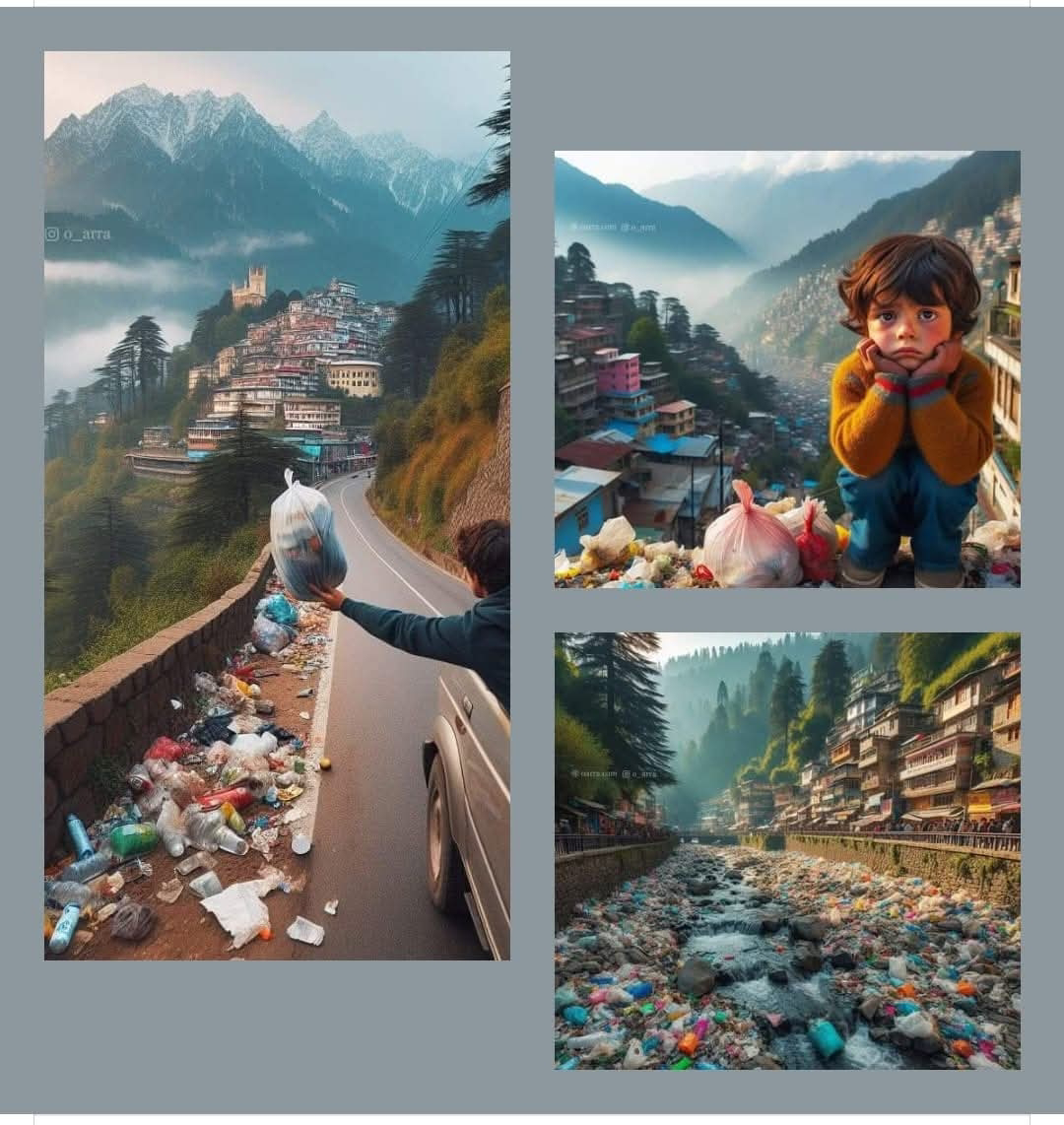Love the Hills? Respect the Hills!
🌿 Love the Hills? Respect the Hills! 🏔️
Mountains have always been a source of inspiration, adventure, and tranquility. Whether it's the serene landscapes of Himachal Pradesh, the spiritual trails of Uttarakhand, the breathtaking valleys of Jammu & Kashmir, or the rugged terrain of Ladakh, these destinations have been a haven for travelers seeking peace and adventure.
However, the growing influx of tourists has brought along a massive challenge—**irresponsible tourism**. Piles of plastic waste, littered trekking trails, traffic congestion, and polluted rivers are tarnishing the pristine beauty of these fragile ecosystems. If we do not act responsibly, we risk losing the very essence of these majestic lands.
🌍 The Dark Side of Irresponsible Tourism
🚮 Plastic Waste & Litter
Single-use plastic is a menace in the mountains. Trekkers and tourists often leave behind plastic bottles, snack wrappers, and other waste, which do not decompose easily. Unlike urban areas, waste management in high-altitude regions is challenging. What you discard might stay there for decades, polluting the soil and water sources.
🚗 Over-Tourism & Traffic Jams
With more people driving to hill stations, roads are becoming congested. Popular destinations like Manali, Mussoorie, Shimla, and Gulmarg now witness long traffic jams, leading to increased carbon emissions and disruption of local life. The very peace travelers seek is being replaced by noise and chaos.
🌊 Polluted Rivers & Lakes
Glacial rivers and lakes are lifelines of the mountains. Unfortunately, many rivers, like the Beas, Ganges, and Indus, suffer from pollution due to direct dumping of waste and sewage from tourist lodges and hotels. Sacred lakes like Hemkund Sahib and Chandratal also struggle with pollution from reckless travelers.
🏕️ Damage to Trekking Trails
Hiking trails are suffering due to deforestation, soil erosion, and littering. The practice of setting up unauthorized camps, lighting open fires, and disturbing local wildlife is disrupting the delicate balance of these ecosystems.
✅ How Can We Travel Responsibly?
Being a responsible traveler is not just a choice—it’s a **duty**. Here’s how we can minimize our impact and help preserve the beauty of our mountains:
1️⃣ **Say NO to Plastic**
- Carry a reusable water bottle and refill it at clean water stations.
- Avoid packaged food; opt for locally made snacks and meals.
- Say no to plastic bags—bring a cloth or jute bag for shopping.
2️⃣ **Leave No Trace**
- Pack your waste and dispose of it properly. If possible, bring back non-biodegradable waste to cities where it can be recycled.
- Stick to marked trails to prevent soil erosion and protect plant life.
- Do not pluck flowers or disturb local flora and fauna.
3️⃣ **Respect Local Culture & Communities**
- Support local businesses by purchasing handmade products instead of factory-made souvenirs.
- Dress modestly and respect the traditions of indigenous communities.
- Be mindful of noise pollution—loud music and honking disturb both locals and wildlife.
4️⃣ **Opt for Sustainable Travel**
- Use public transport, shared cabs, or eco-friendly travel options whenever possible.
- Choose homestays or eco-friendly accommodations that promote sustainable practices.
- If trekking, hire local guides and porters to support the local economy.
5️⃣ **Be Water Conscious**
- Avoid excessive use of water for bathing and washing clothes, as water is scarce in high-altitude regions.
- Do not pollute rivers and lakes—avoid using soaps or detergents in natural water bodies.
🌱 A Collective Responsibility
Protecting our mountains is a **collective effort**. If every traveler commits to responsible tourism, we can ensure that Himachal, Uttarakhand, Jammu & Kashmir, and Ladakh remain breathtakingly beautiful for generations to come.
If you truly love the hills, show it by **respecting them**. Because tourism should be a blessing, not a curse!
Let’s travel responsibly. Let’s leave no trace.
#SaveTheHills #ResponsibleTourism #EcoTravel #LeaveNoTrace #SustainableLiving


Comments
Post a Comment